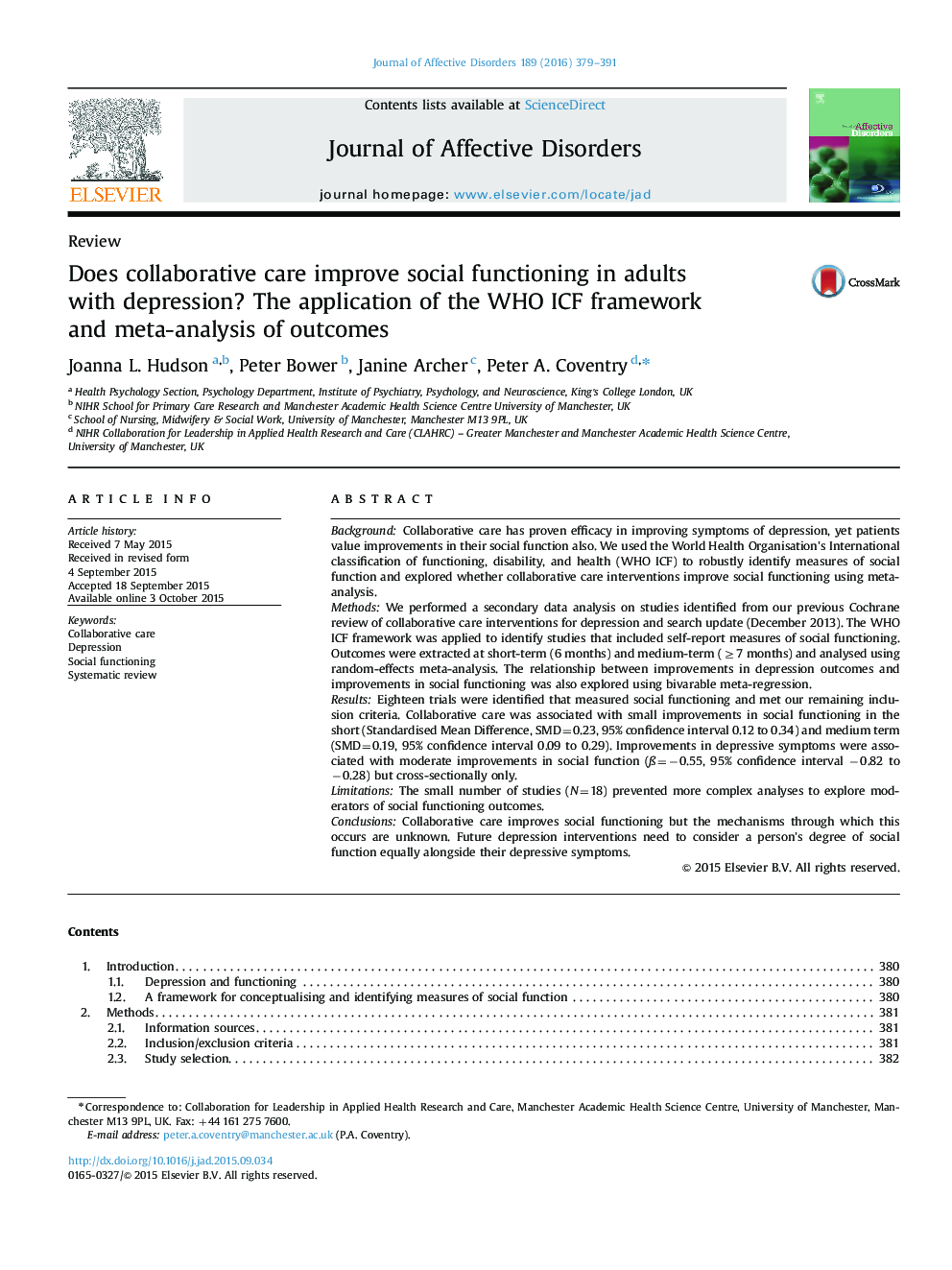| Article ID | Journal | Published Year | Pages | File Type |
|---|---|---|---|---|
| 6230940 | Journal of Affective Disorders | 2016 | 13 Pages |
â¢The WHO-ICF is a good starting point to identify components of social functioning.â¢Collaborative care is associated with small improvements in social functioning.â¢Improvements in depression were associated with improvements in social functioningâ¢Participative social functioning could be a key target of depression treatment.
BackgroundCollaborative care has proven efficacy in improving symptoms of depression, yet patients value improvements in their social function also. We used the World Health Organisation's International classification of functioning, disability, and health (WHO ICF) to robustly identify measures of social function and explored whether collaborative care interventions improve social functioning using meta-analysis.MethodsWe performed a secondary data analysis on studies identified from our previous Cochrane review of collaborative care interventions for depression and search update (December 2013). The WHO ICF framework was applied to identify studies that included self-report measures of social functioning. Outcomes were extracted at short-term (6 months) and medium-term (â¥7 months) and analysed using random-effects meta-analysis. The relationship between improvements in depression outcomes and improvements in social functioning was also explored using bivarable meta-regression.ResultsEighteen trials were identified that measured social functioning and met our remaining inclusion criteria. Collaborative care was associated with small improvements in social functioning in the short (Standardised Mean Difference, SMD=0.23, 95% confidence interval 0.12 to 0.34) and medium term (SMD=0.19, 95% confidence interval 0.09 to 0.29). Improvements in depressive symptoms were associated with moderate improvements in social function (Ã=â0.55, 95% confidence interval â0.82 to â0.28) but cross-sectionally only.LimitationsThe small number of studies (N=18) prevented more complex analyses to explore moderators of social functioning outcomes.ConclusionsCollaborative care improves social functioning but the mechanisms through which this occurs are unknown. Future depression interventions need to consider a person's degree of social function equally alongside their depressive symptoms.
